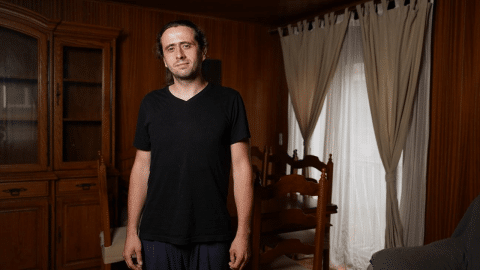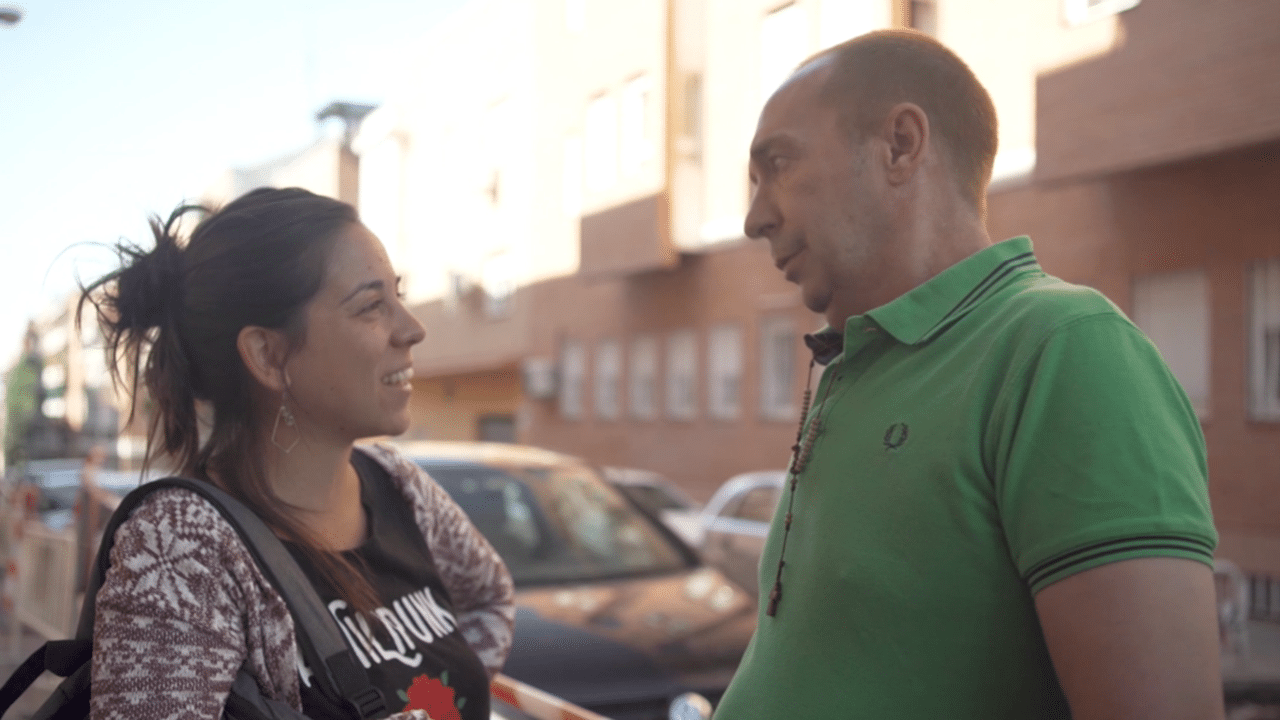
The opportunity presented by the Spanish Recovery, Transformation and Resilience fund in the framework of the Next Generation EU Funds included among its lever policies an initiative called a « Shock Plan for the care economy and reinforcement of inclusion policies ». This opportunity, aimed at reinforcing dependency care policies and a change in the long-term care and support model also included among its priorities a profound shift into a person centred care and deinstitutionalisation policies. It is in this framework that Provivienda and Hogar Si presented two pilot projects with an ambitious challenge aimed at transforming the traditional homelessness care system.
Derechos a la Vivienda (DaV- Rights to Housing) and H4Y FUTURO (H4YF- There is a Future) are two pilot projects of social innovation, driven in Spain by the Alliance of HOGAR SÍ-Provivienda, which began in January 2022 and will conclude in December 2024. Both projects share a common goal: to implement new community based solutions to homelessness, promoting the development and transformation of social policies for homelessness eradication through deinstitutionalisation and prevention of institutionalisation. They are based on a person-centred rights approach and three key pillars: housing, community and autonomy solutions.
DaV is being implemented in 8 different territories (Sevilla, Madrid, Murcia, Cartagena, Avilés, Gijón, Mallorca and Barcelona) with 1.184 participants who are experiencing homelessness with different profiles: 1; institutionalised people from the homelessness system, both from shelters and existing supported housing projects, and 2; individuals with a recent history of less than 6 months of homelessness, for whom an early intervention and prevention response is sought. Regarding the socio demographic profile of the participants: 73% are men, the average age is 43 years, and the average time experiencing homelessness is 7 years.
H4YF is focused on youth homelessness and based on the Housing First for Youth methodology, involving 105 young people aged 18 to 25. The project is located in two major regions: Madrid (75 participants) and Mallorca (30), where 78.4% of the participants are men, the average age is 22 years, and the average time experiencing homelessness is 21 months. The intervention is based on two fundamental approaches: early person-centred care and a trauma-informed approach.
The participation of 12 public administrations in both projects was carefully designed to engage as much as possible those municipalities with highest rates of homelessness but also those already interested in making the shift to community based housing solutions. The projects also seek to strengthen the capacities of public administrations to take ownership of a new support model.
The projects seek to generate evidence to prove the following hypothesis: Community based housing solutions along with a heterogeneous portfolio and flexible services freely chosen by people, facilitate deinstitutionalisation processes, increasing their choice capacity, level of autonomy and integration in the community. But also reduce the support needs and promote autonomous exits from the system into long term housing solutions, thus saving costs.
To assess the impact and suitability of both methodologies and to generate evidence that supports their sustainability, a comprehensive evaluation is being conducted across various dimensions to measure the multiple facets in which these two programs operate. This evaluation is based on three main approaches: impact assessment (for the participants, involved professionals, and collaborating public administrations), process evaluation, and cost-effectiveness economic evaluation. Both quantitative and qualitative techniques are being used to gather and deepen insights into the processes.
At this stage of the project, we have some preliminary results. We have conducted the initial impact assessment, which has provided a baseline characterisation and starting point for all parties involved. An interim process evaluation has also yielded some interesting conclusions that have been shared with the team to stimulate discussions and reflections aimed at driving changes and improvements based on identified needs. Changes both in the tools used to support clients together with the shift in the professional approach that involves cultural and organisational changes and urge a good upskilling and reskilling strategy to be matured and implemented.
Furthermore, we are currently conducting fieldwork for the interim measurement of the participating individuals. After its completion, the relevant analyses will be carried out, and an interim results report will be prepared for presentation in January 2024. This report will allow us to understand the short-term impact being promoted by the program.
What evidence have we found at this point? The recruitment process for young homeless people in H4YF has been very effective, with the team addressing the shortcomings and difficulties in accessing the program for some sectors of young people who are often overlooked due to their vulnerability. Many of them with irregular status in Spain, we found that aspect as one of the main blockings for their process; however, we observe great success in regaining autonomy and restarting employment paths as part of their participation in the project.
Regarding on DaV, deinstitutionalisation is the heart of the project. The project’s intrinsic time perspective allows a focus on promoting autonomy to facilitate exit from the system from the very beginning, with intensive support given the reduced professional-client ratio. The tight time perspective represents a radical change compared to other solutions such as Housing First. In this sense, for both the professional team and the clients, having a deadline enables the focus on autonomy and exit from the system from the very first moment and is yielding better results with a good share of participants.
Some other findings; clients with long periods of institutionalised care have a worse perception of their future employment compared with those attended in early care; only 39% of the institutionalised clients in the project see it possible to get a job, compared to 68% out of early care or 75.4% in self-directed supports. Discouragement is a note of institutionalisation.
In both projects, efforts have been made to design living units that align as much as possible with the participants’ desires, promoting autonomy and freedom of choice, which are key factors in the personality of these projects. However, this purpose has also run into the complexity and difficulty of accessing the real estate market in major cities like Madrid, Barcelona or Mallorca. In the global housing crisis hitting Spain, those cities concentrate on the higher price rises in the past months. Therefore, we have had to adjust the housing solutions to the reality of the market, forcing the project to work on shared housing solutions more than expected. But some strategies have also been activated, such as: ceding ownership to people while they are in the programme; others have been accompanied to look for alternatives such as metropolitan areas, extending housing alternatives to help with renting rooms and the generation of housing search groups as a more effective and sustainable response.
The share of housing price in the per day cost counts for up to 50% in some cases, including all support services. We find important to negotiate alternatives with public administrations to reduce the share of the housing price and reduce costs, in order to transfer this new model and make it cost efficient.
The cooperation spaces between public administrations and the Alliance are contributing to strengthening relationships, bringing closer positions and sharing the transformative vision of the project. The experience in this collaboration process reflects a very important learning: flexibility and a conciliatory attitude are especially effective in order to build a relationship of trust and co-responsibility that subsequently allows for greater changes to be promoted.
Other relevant findings in both projects include the positive assessment of the transition to housing and the willingness to change among the professional team, who aim to move away from traditional paternalistic attitudes.
Our challenges ahead? To create sustainable autonomous exits over time in a context of housing crisis; overcome professional inertia towards system-centred approaches; balance the tight time schedule with the need to respect the pace of change for clients and to be able to transfer and escalate our learnings and a new intervention model into public policies to combat homelessness.

For further information, please, click here
The « contacto » section is available for all enquiries.
—
About the Authors
HOGAR SÍ and Provivienda’s team have kindly wrote this article.